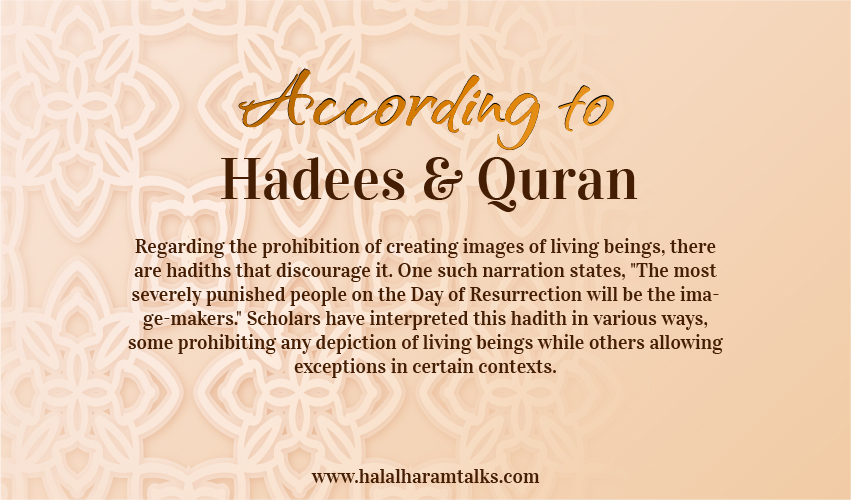In today’s digital era, it is crucial to reflect upon the Islamic perspective on various aspects of our virtual lives. One intriguing question that has arisen in recent years is Are Bitmojis Haram Or halal. As technology continues to evolve, it is our responsibility to seek clarity on such matters to ensure that our actions align with our faith.
In this blog post, we will delve into the discussion surrounding the use of Bitmojis from a scholarly perspective, considering arguments for and against their permissibility. Additionally, we will address specific concerns, such as the potential for idolatry or the violation of modesty standards. By exploring these viewpoints, we seek to provide you with a better grasp of the topic to help you make an informed decision about the use of Bitmojis in your own life.
Are Bitmojis Haram
Bitmojis are not inherently haram in Islam or any other religion. They are simply digital avatars or emojis that people use to represent themselves in online communication. The permissibility of using Bitmojis would depend on how they are used and the context in which they are used.
In Islam, the concept of haram revolves around actions that are forbidden or sinful according to the teachings of the Quran and Hadith. Using Bitmojis as a form of self-expression or light-hearted communication is generally not considered haram.
However, if Bitmojis are used to depict inappropriate content, promote immorality, or engage in any prohibited activities, then it would be considered haram. It all comes down to the intention behind their use and whether they align with Islamic values.
Ultimately, it’s essential for individuals to exercise discretion and adhere to their religious beliefs when using any form of communication, including Bitmojis.
Related: Is Bovine Gelatin Halal [A Complete Guide]
Why Are Bitmojis Halal Or Haram?
Determining the permissibility of Bitmojis requires considering Islamic principles and evaluating whether their usage aligns with them. Some argue that Bitmojis are merely digital representations and expressions, equivalent to using emojis. In this perspective, as long as the content conveyed through Bitmojis remains within the boundaries of Islamic ethics, it can be considered halal (permissible).
Others argue that creating digital avatars that resemble living beings is similar to imitating Allah’s creation, which is prohibited in Islam. This viewpoint is derived from the hadith that discourages drawing living beings. It is important to note that there are differing opinions among scholars on this matter, and the final ruling may vary based on individual interpretation.
Related:Are Takis Halal: A Complete Guide

Quran Verse & Hadith about Are Bitmojis Halal Or Haram
While the Quran does not specifically address the permissibility of Bitmojis or similar digital avatars, it lays down general principles that can guide our understanding. The Quran emphasizes the importance of intention and avoiding extravagance in one’s actions. It also advises Muslims to use their time and resources in a responsible and beneficial manner.
Regarding the prohibition of creating images of living beings, there are hadiths that discourage it. One such narration states, “The most severely punished people on the Day of Resurrection will be the image-makers.” Scholars have interpreted this hadith in various ways, some prohibiting any depiction of living beings while others allowing exceptions in certain contexts.
Related:Is Prime Drink Halal: An Authentic Guide
Are Bitmojis Haram on Snapchat?
Bitmojis were initially introduced as a feature within the popular social media platform Snapchat, which has raised questions among users about their permissibility. In general, using Bitmojis within Snapchat does not necessarily make them haram. The permissibility depends on the content shared and the context in which they are used.
If the Bitmojis are created to propagate inappropriate or objectionable material, or encourage actions forbidden in Islam, their usage would be considered haram. However, if the Bitmojis are used for innocent and harmless expression while adhering to Islamic values, they can be considered halal.
Related:Are Cheetos Halal Or Haram [Explained With Proof]
Are Bitmojis Haram Shia or Sunni?
The permissibility of Bitmojis is not limited to a specific sect within Islam. The Shia and Sunni perspectives on the matter are generally similar, revolving around the principles and teachings of the Quran and Hadith. Both sects emphasize the importance of intention and avoiding the imitation of Allah’s creation.
However, interpretations and conclusions may vary among scholars within each sect. Some scholars might consider Bitmojis as permissible due to their digital nature and the absence of a physical form. Others might adopt a stricter stance, considering them haram due to the potential for imitating Allah’s creation and promoting vanity.
Related: Is Mozzarella Cheese Halal [All Clear]
FAQs
A: No, Bitmojis do not involve any elements of religious worship or idolatry. They are simply digital representations used for communication purposes.
A: Islam encourages respectful and kind communication. Using Bitmojis to mock or belittle others would be contrary to Islamic teachings and etiquette, making it impermissible.
A: Time management is important in Islam. If creating Bitmojis becomes excessive and leads to neglecting more important duties or obligations. It can be considered a waste of time and thus discouraged.
Conclusion
The permissibility of Bitmojis in Islam is a topic subject to interpretation and varying opinions among scholars. As long as the content shared through Bitmojis remains within the boundaries of Islamic ethics, it can be considered halal. However, caution should be exercised to ensure that Bitmojis are not used to propagate inappropriate or objectionable material.
It is important for individuals to seek guidance from trusted scholars or Islamic organizations. To better understand the specific guidelines and rulings pertaining to Bitmojis. It is crucial to remember that Islam encourages intentionality. Moderation, and the avoidance of actions that may imitate or detract from Allah’s creation.
To delve deeper into this topic. Individuals can explore resources and engage in discussions. That addresses the nuances of using avatars and digital representations within the Islamic context. This will enable them to make informed decisions based on their understanding of Islamic principles, guided by knowledgeable scholars.
For more in-depth information and resources on matters of halal and haram in Islam. Visit our website where you can explore a wide range of topics and find guidance to lead a righteous and meaningful life.
